100th Anniversary Great Nave Tour at the Cathedral of St. John the Divine
Celebrate the 1925 construction of the stunning nave inside the world's largest Gothic cathedral!


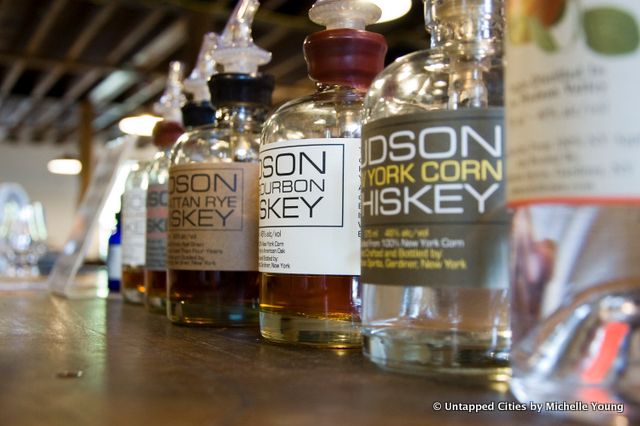
The minute I turned onto Gristmill Lane in Gardiner, New York and saw the homemade signs, I knew it was going to be a great day out of New York City. We were on a roadtrip specifically to visit Tuthilltown Spirits in the Hudson Valley, the first whiskey distillery in New York State since Prohibition.
The story behind the company actually rivals the taste of its whiskeys (which I can assure were nothing short of life changing), and begins on the Upper West Side of Manhattan. Ralph Erenzo, a professional climber and co-owner of Tuthilltown Spirits, ran the climbing wall on 63rd Street and Broadway (now the David Rubenstein Atrium), a local spot familiar to those of us that grew up in the area.
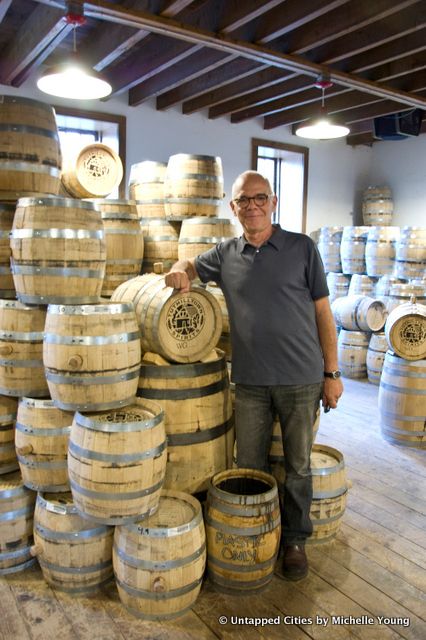
Ralph Erenzo, at the Tuthilltown Distillery
In 2001, as the revitalization of the Lincoln Center area was in full swing, Ralph sold the business and bought a gristmill property up in Gardiner hoping to turn it into a lodge for climbers hiking the nearby Shawangunk Ridge (also known as the Gunks). The neighbors were wary of such an endeavor, to say the least, and for the better part of three years, had all of Ralph’s permits rejected and pointblank informed him that they would stall until he ran out of money to fight. The innovative mantra of the distillery was born straight out of this particular moment of crisis””what else could Ralph possibly do with this property?
After some research, Ralph discovered that a legal statute called the “Right to Farm” meant that as long as he was producing agricultural products, nobody, not even the neighbors, could stop him. Even more interesting was that “agriculture” included alcohol production. Wine didn’t interest him, especially with the high competition, but whiskey did.
He admits to not knowing anything about whiskey before. But over the course of a winter, using makeshift kettles over his stove, Ralph tinkered and experimented, checking whether it was really possible to make homemade whiskey.
Another roadblock was a piece of leftover legislation from the Prohibition era that required a $60,000 licensing fee to run a distillery, which not surprisingly, prohibited any new ones from opening since then. Ralph pressed the state legislature for four years to enact the Farm Distillery license which reduced the fee to $1250 fee over three years, with a 35,000 gallon production cap. This paved the way for the proliferation of microdistilleries in New York, including Brooklyn’s King’s County Distillery.
Ralph and his partner Brian Lee built up the infrastructure for Tuthilltown themselves, digging holes, installing electrical and plumbing, rehabilitating the old mill buildings. Ralph would work during the day and Brian would drive over from his day job in Connecticut and work at night. Their first distillery machines didn’t come with an instruction manual, but led by Ralph’s “do-it-yourself” attitude, the duo steadfastly refused to hire anybody to put it together.
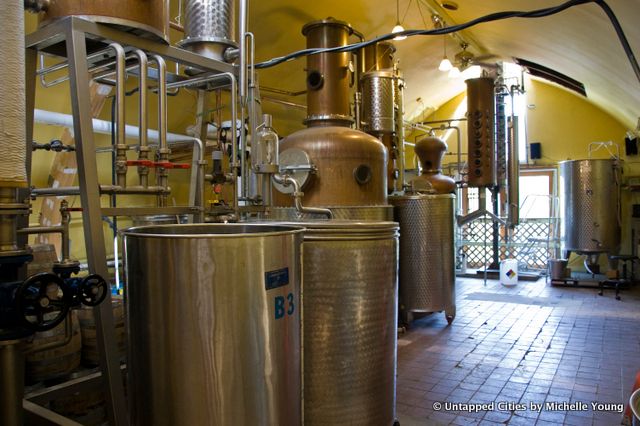
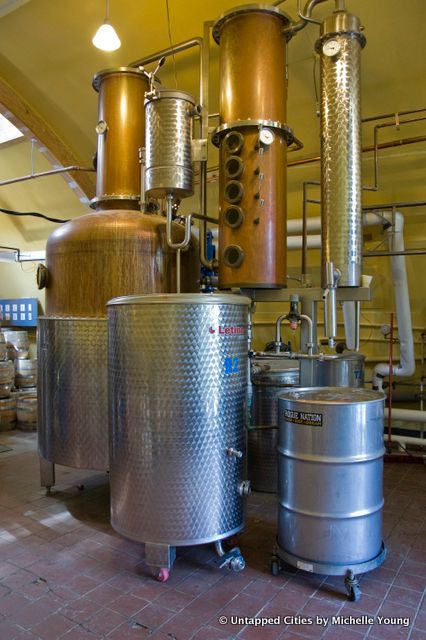
The whiskey barrels themselves concealed yet another chance to turn challenge into opportunity. After Prohibition, the barrel lobby managed to legislate that American whiskey must be produced from new barrels””a stipulation that doesn’t exist overseas””and that nothing could be added to the barrel. Ralph pored over the wording of the law and inferred that it said nothing about the size of barrels used or about the removal of parts from the barrel.
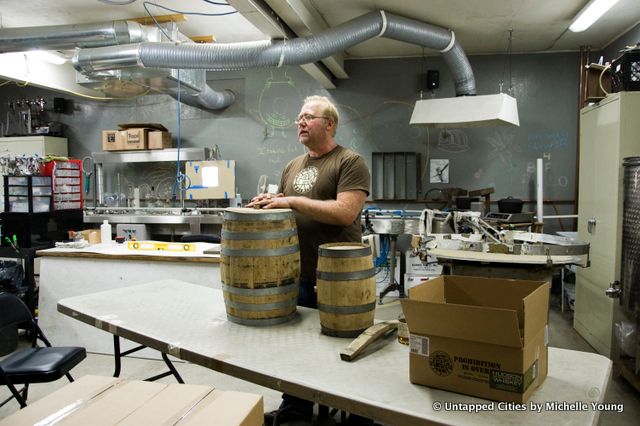
Experimentation thus began with mini barrels and a now-patented technique of boring holes in the barrels to increase surface area. The unique flavors derived from this combination of methods have come to define Tuthilltown Spirits products.
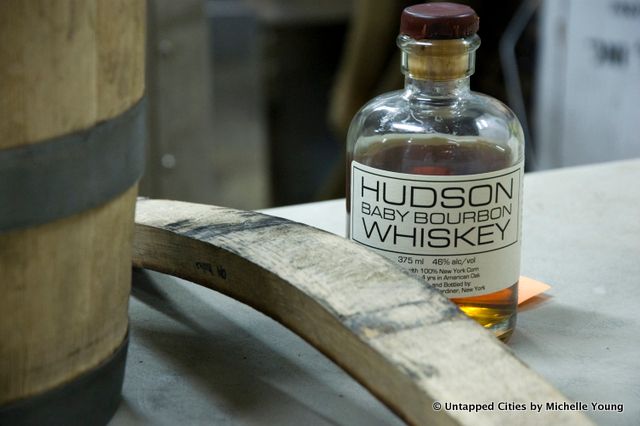
These innovations were met with skepticism on the part of the established Tennessee and Kentucky whiskey companies. They told Ralph he was destroying the tradition of whiskey, to which he responded: “What tradition? The one from the South? From the North? From 10 years ago? 50 years ago? 100 years ago? The only tradition I respect is the American tradition, which is the ‘can do’ tradition.”
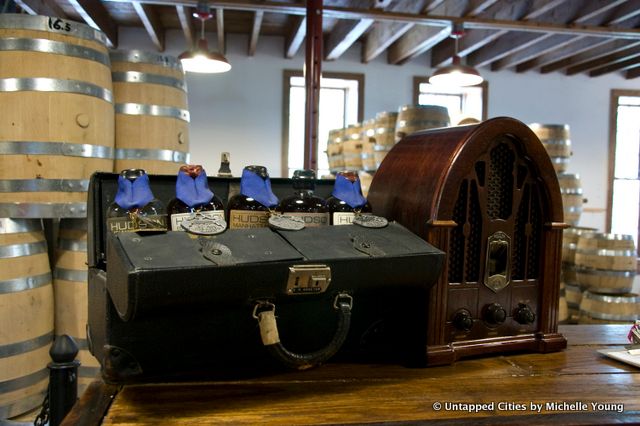
When the first batch of whiskey was ready, he googled “Best Liquor Store in NYC” and came across Lenell’s in Red Hook (now closed). After an initial phone call, he drove down to the shop the next day, where the owner bought the entire batch on the spot. He then went from store-to-store, restaurant-to-restaurant, walking in with his baby bourbon whiskeys stored in a vintage doctor’s bag. He even walked right into Jean George and spoke to the man himself.
Ralph and I spoke at length about how important the “can do” tradition is, particularly in this economy, and how stories like his can inspire those of the current and next generation. Still, he cautions, at the end of the day, you have to have a great product. From a marketing perspective, he knew that the claim, “First whiskey distillery since Prohibition” would get them in the door, but if the product wasn’t great, people wouldn’t come back.
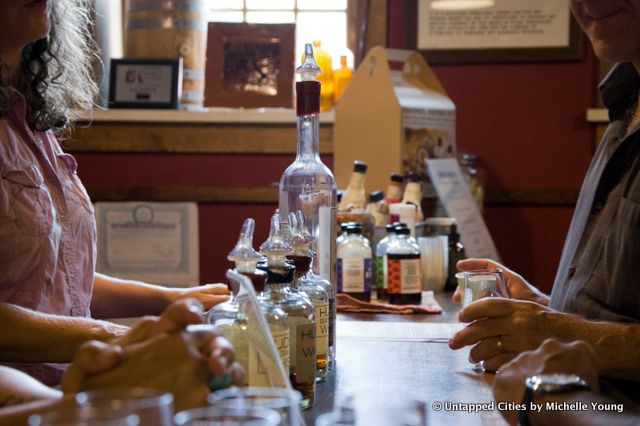
3 tastings come included with the tour
Innovation is also essential, and they’ve managed to upend not only the distillery process, but also the size and shape of the bottles, the marketing and more. They’ve also been busy expanding and diversifying the product line. There are four barrel aged spirits, a seasonal cassis liqueur for fall, Hudson New York Corn Whiskey and a Half Moon Orchard Gin made from apples to be released in just a few weeks.
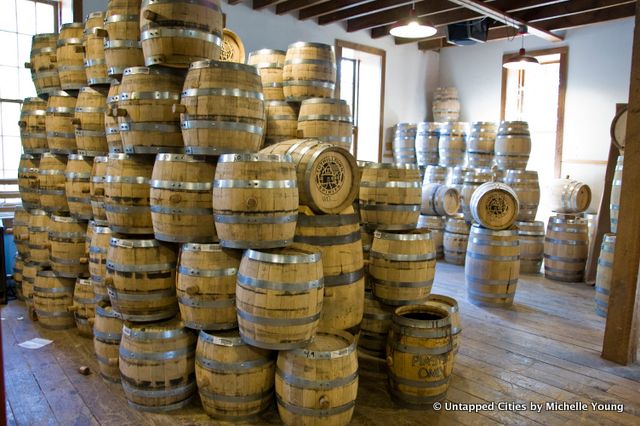
Despite the demand, Ralph will always run Tuthilltown Spirits as a handmade, microdistillery that supports local business and sustainable agriculture (90% of raw materials come from within 10 miles). All of the spirits start at the farm distillery as raw grain, fruit or molasses, and are made without added flavor or color. They are batch distilled from scratch, making each batch unique and unrepeatable. Despite booming business, he’ll only automate aspects of the process that will not affect the flavor or artisanal nature of the product, such as capping the bottles. They’re still hand labeling and numbering all of the bottles, which then go into boxes labeled “PROHIBITION IS OVER.”
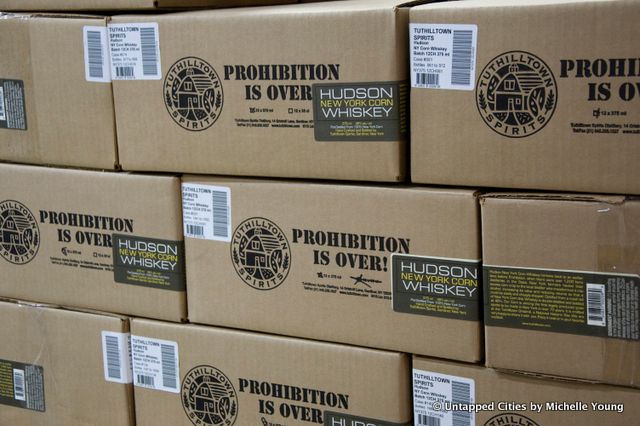
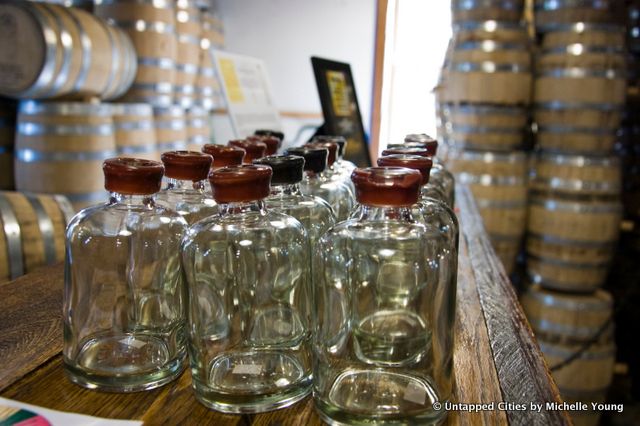
As I conclude this piece, I’m left with the feeling that I haven’t been able to do Ralph and Tuthilltown Spirits justice yet””there’s just something about the warmth of the place, the magic of a great American entrepreneurial story, and the honesty of Ralph’s mission that can’t be captured in words. So to that end, we’ll be organizing an exclusive Untapped New York tour of the distillery with Ralph soon, and we hope you’ll join us. Stay tuned for details!
Tuthilltown Spirits [Map]
14 Gristmill Lane
Gardiner, NY 12525
Get in touch with the author @untappedmich.
Subscribe to our newsletter